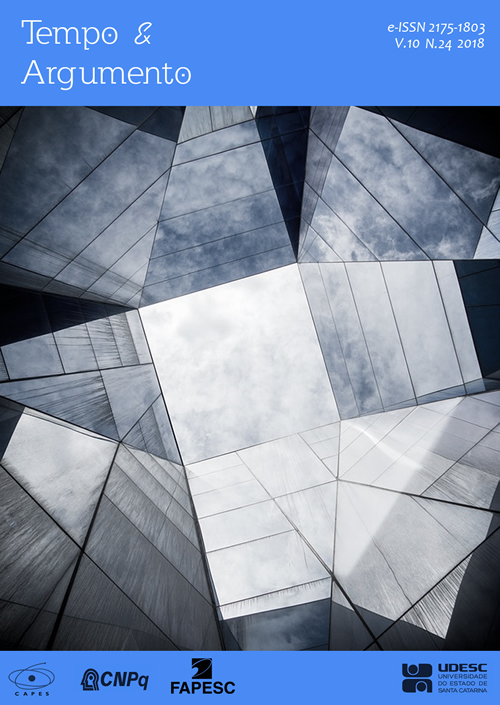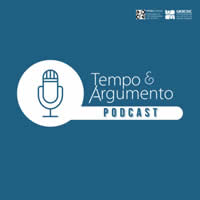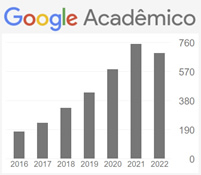A estrutura ontológica do tempo presente
DOI:
https://doi.org/10.5965/2175180310242018043Resumo
A História do Tempo Presente mobiliza epistemologicamente um conceito de presente específico. Não obstante a estrutura ontológica do conceito de presente não ser autoevidente, enquanto conceito, isto é, como elaboração intelectual, pode-se determiná-lo por uma investigação de sua história. Objetiva-se, portanto, descobrir a história do conceito de presente de uma perspectiva ontológica, expor sua natureza de limite-criativo do tempo, bem como sua forma infinita, eterna. Martin Heidegger rompe com essa maneira tradicional de interpretar o fenômeno do tempo ao questionar a natureza do modus temporal presente legado pela filosofia. Nesses termos, o argumento final sublinha a reviravolta sofrida pela noção de presente em Heidegger como movimento central para a justificação teórica do campo historiográfico da História do Tempo Presente.
Palavras-chave: Presente. Tempo. Ontologia.
Downloads
Referências
AGOSTINHO. Confissões XI. In: REY PUENTE, Fernando; BARACAT JÚNIOR, José. Tratados sobre o tempo: Aristóteles, Plotino e Agostinho. Belo Horizonte: Editora UFMG, 2014.
AUGUSTIN. Confessions. Tome II : Livre IX-XIII (Texte établi et traduit par : Pierre De LABRIOLLE). Paris: Les Belles Lettres, 1926.
AUGUSTINE. Confessions - Volume II - Books 9–13 (Edited and translated by Carolyn J.-B. Hammond). Cambridge: Harvard University Press, 2016.
AQUINO. Suma teológica. São Paulo: Edições Loyola, 2006.
ARISTÓTELES. Tratado do Tempo, Física IV 10-14. In: REY PUENTE, Fernando; BARACAT JÚNIOR, José (Orgs.). Tratados sobre o tempo: Aristóteles, Plotino e Agostinho. Editora UFMG: Belo Horizonte, 2014.
ARISTOTLE. Physics. Cambridge: Harvard University Press, 1957.
ARISTOTE. Physique. Tome I: Livres I-IV (Texte établi et traduit par : Henri CARTERON). Paris : Les Belles Lettres, 1926.
ARISTOTE. Catégories (Texte établi et traduit par : Richard BODÉÜS). Paris : Les Belles Lettres, 2002
ASSMANN, J. et al. “Zeit”. In: RITTER, Joachim ; GRÜNDER, Karlfried ; GABRIEL, Gottfried (Hgg.): Historisches Wörterbuch der Philosophie - Bd. 12. Basel: Schwabe & Co., 2004.
CALLAHAN, John. Four views of time in ancient philosophy. Cambridge: Harvard University Press, 1948.
CONEN, Paul. Die Zeittheorie des Aristoteles. München: C. H. Beck’sche Verlagsbuchhandlung, 1964.
CROCE, Benedetto. La storia como pensiero e come azione.Laterza: Bari, 1943.
DE CARVALHO, Augusto. História do passado: da conceitualização tradicional à reconfiguração em Walter Benjamin, Martin Heidegger e Sigmund Freud. Orientadora: Heloísa Maria Murgel Starling. 2017. 392f. Tese (Doutorado em História) – Faculdade de Filosofia e Ciências Humanas, Universidade Federal de Minas Gerais, Belo Horizonte, 2017.
DERRIDA, Jaques. Marges de la Philosophie. Paris : Les Éditions de Minuit, 1972.
DOSSE, François. História do Tempo Presente e Historiografia. Tempo & Argumento, Florianópolis, v. 4, v. 1, jan./jun., 2012.
DROYSEN, Johann Gustav. Historik: Rekonstruktion der ersten vollständigen Fassung der Vorlesungen (1857) Grundriß der Historik in der ersten handschriftlichen (1857/1858) und in der letzten gedruckten Fassung (1882). Textausgabe von Peter Leyh. Stuttgart: Fromann-Holzboog, 1977.
EINSTEIN, Albert. Bemerkungen zu den in diesem Bande vereinigten Arbeiten. In: SCHILPP, P. A. Albert Einstein als philosoph und naturforscher. Braunschweig: Vieweg, 1979.
FICO, Carlos. História que temos vivido. In: História & Narrativa: A ciência e a arte da escrita histórica. Petrópolis - RJ: Editora Vozes, 2016.
GADAMER, Hans-Georg. L’expérience intérieure du temps et l’échec de la réflexion dans la pensée occidental. In: Le temps et les philosophes. Payot/Unesco: Paris, 1978.
GADAMER, Hans-Georg. Wahrheit und Methode. Hermeneutik II . In: Gesammelte Werke (Band 2). Tübingen: J. C. B Mohr (Paul Siebeck), 1993.
HEGEL, Georg Wilhelm Friedrich. Werke in 20 Bänden mit Registerband. Frankfut am Main: Suhrkamp, 1986.
HEIDEGGER, Martin. Gesamtausgabe (102 Bänden). Frankfurt am main: Vittorio Klostermann, (1977-). (GA)
HEIDEGGER, Martin. Ser e tempo [Sein und Zeit] (edição bilíngue).Trad. de Fausto Castilho. São Paulo: Editora da Unicamp; Vozes, 2012.
HEIDEGGER, Martin. Os problemas fundamentais da fenomenologia. Trad. Marco Casanova. Petrópolis: Editora Vozes, 2005.
HUME, David. A Treatise of human nature. Oxford: Clarendon Press, 1739.
HUSSERL, Edmund. Vorlesungen zur Phänomenologie des inneren Zeitbewußtseins. Freiburg: Max Niemeyer Verlag, 1928.
JAMES, William. The principles of psychology. New York: Henry Holt and Co., 1890.
KOCKELMANS, Joseph. Heidegger on time and being. In: MACANN, Christopher (Ed.). Martin Heidegger: critical assessements (vol 1).New York, London: Routledge, 1992.
KOSELLECK, Reinhart. Vergangene: Zukunft. Zur Semantik geschichtlicher Zeiten. Frankfurt am Main: Suhrkamp, 2000.
LEVINAS, Emmanuel.Dieu, la mort et le temps. Paris : Grasset & Fasquelle, 1993.
LLOYD, G. E. R. Le temps das la pensée grecque. In: RICOEUR, Paul. Les Cultures et le Temps. Paris : Payot; Unesco, 1975.
MARX, Werner. Heidegger und die Tradition. Eine problemgeschichtliche. Einführung in die Grund bestimmungen des Seins. Stuttgart: Kohlhammer Verlag, 1961.
MCTAGGART, John Ellis. The Unreality of time. Mind, n. 17, 1908.
MEIJERING, E. Augustin über Schöpfung, Ewigkeit und Zeit. Das elfte Buch der Bekenntnisse. Leiden, 1979.
O’DONNELL, James. Augustine Confessions (III – Commentary on Books 8-13). Oxford: Claredon Press, 1992.
PLATÃO. Timeu. In: PLATÃO. Diálogos V. Trad. Edson Bini. São Paulo: Edipro, 2010.
RANGEL, M. de M.; ARAUJO, V. L. de. Apresentação - teoria e história da historiografia: do giro linguístico ao giro ético-político. História da historiografia, Ouro Preto, n. 17, p. 318-332, abr. 2015.
TESKE, Roland. Paradoxes of time in Saint Augustine (the aquinas lecture). Milwaukee: Marquette University Press, 1996.
RICOEUR, Paul. Temps e Récit III. Le temps raconté. Paris: Éditions du Seuil, 1985.
WEIGELT, Charlotta. Aristotle’s Logical Analysis of Motion in Physics I. In: SCHUBACK, Márcia sá Cavalcante; PEREIRA, Luiz Carlos. Time and Form: Essays on Philosophy, Logic, Art, and Politics. Stokholm: Axl Books, 2014.
WEIS, Josef. Die Zeitontologie des Kirchenlehrers Augustinus nach seinen Bekenntnissen (Europäische Hochschulschriften – Reihe XX : Band 135). Frankfurt am Main; Bern; New York: Peter Lang, 1984.
ZWART. P. J. The flow of time. Synthese, nº 24, 1972.





